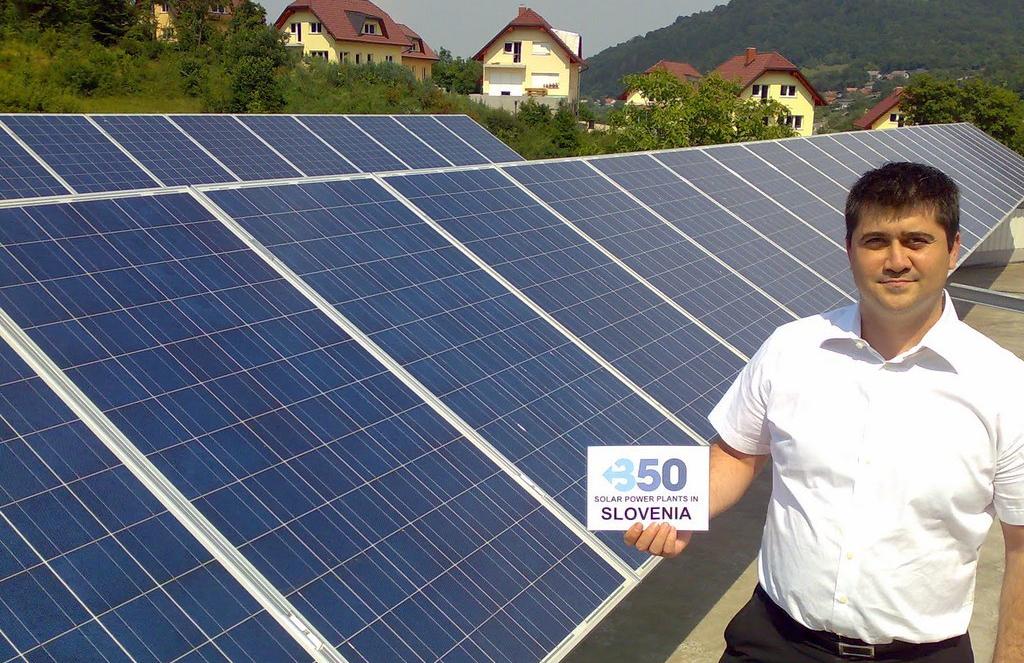Thessaloniki gets ready for its metro launch in November
The underground rapid transit lines have been under construction for almost two decades due to various project delays
 TheMayor.EU logo
TheMayor.EU logo 
sustainable energy in Slovenia, Source: Kamnik pod Krimom, Slovenia. photo by Marko Femc CC BY-NC-SA 2.0
Integrating renewable energy sources into the distribution network
As environmental protection becomes more and more important for the European Union, it inserts the issue into almost every piece of policy and legislation that is currently being developed - including of course energy generation and renewables.
The energy sector is one of the most polluting ones since it depends to a great extent on coal and other fossil fuels. It is also at risk of crashing once all these fuels are exhausted. Some countries rely on nuclear energy but, this being regarded as dangerous, makes many countries develop alternative phase-out plans.
According to the Slovenian Statistical Institute, 42% of the energy mix is provided by nuclear energy, 32% - by renewable energy sources and 25% - by coal.
In 2018 the Government of Slovenia adopted a plan for Energy Concept that will set forth the country`s energy goals. These include reduction of GHG emissions, a transition to a low-carbon economy based on nuclear energy, restriction of fossil fuel use and increasing energy efficiency through renewable energy and low carbon sources.
Slovenia signed its first loan agreement for energy efficiency and electricity distribution in 2015. The loan was granted by the European Investment Bank and was at the amount of 20 million euro. For the next few years, the government procured further loans, totalling 145 million euro. This initial period saw projects in the field - such as extension and refurbishment of the existing network as well as the installation of metering infrastructure of new generation.
The environmental aspects of this first project were not very pronounced due to the activities it included.
A second agreement was signed in the end of 2019 for a total amount of 153 million euro. The main objectives of the project are to reinforce networks, refurbish low, medium and high voltage networks, connect, and integrate renewable energy sources and networks into the overall energy network of Slovenia and climate-proofing for part of this network.
The implementation of all periods of the electricity distribution initiative is in accordance with EU environmental requirements and are not expected to impact the environment in any major way.

The underground rapid transit lines have been under construction for almost two decades due to various project delays

Now you can get your wine in Talence by paying directly in Bitcoin

That’s because the state has to spend money on updating the railway infrastructure rather than subsidizing the cost of the popular pass

Rethinking renewable energy sources for the urban landscape

The examples, compiled by Beyond Fossil Fuels, can inform and inspire communities and entrepreneurs that still feel trepidation at the prospect of energy transition

Now you can get your wine in Talence by paying directly in Bitcoin

The 10th European Conference on Sustainable Cities and Towns (ESCT) sets the stage for stronger cooperation between the EU, national and local level to fast track Europe's transition to climate neutrality.

At least, that’s the promise made by the mayor of Paris, Anne Hidalgo

The underground rapid transit lines have been under construction for almost two decades due to various project delays

At least, that’s the promise made by the mayor of Paris, Anne Hidalgo

Hostal de Pinós is located in the geographical centre of the autonomous region

Despite its church-y name, the district has long been known as the hangout spot for the artsy crowds

Urban dwellers across the EU are having a say in making their surroundings friendlier to people and the environment.

Forests in the EU can help green the European construction industry and bolster a continent-wide push for architectural improvements.

Apply by 10 November and do your part for the transformation of European public spaces

An interview with the Mayor of a Polish city that seeks to reinvent itself

An interview with the newly elected ICLEI President and Mayor of Malmö

A conversation with the Mayor of Lisbon about the spirit and dimensions of innovation present in the Portuguese capital














